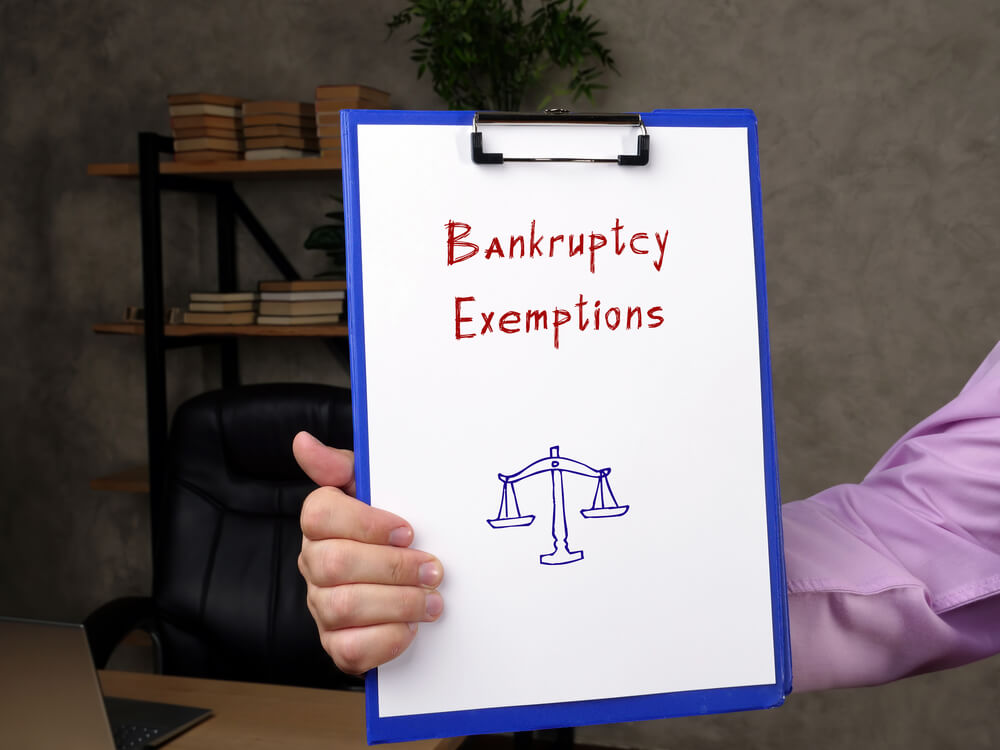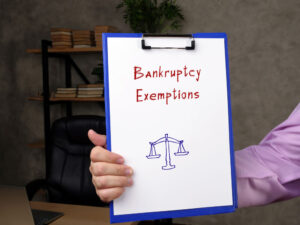
Contents
FL Bankruptcy Exemptions
Florida Chapter 7 Exemptions
Before you file for bankruptcy in Florida you must find out how long you have to live in the state in order to use its exemptions. Inquire whether these exemptions will protect your property and what happens to non-exempt property. Remember that not just anyone can file for bankruptcy in the state, so talk to an experienced Bankruptcy Law Firm In FL to help you determine whether bankruptcy is the right option for you.
Florida’s Bankruptcy Exemptions
Florida Exemptions From Creditors
 People who file either a Chapter 7 bankruptcy or a Chapter 13 bankruptcy can protect their property with an exemption. For a Chapter 7 bankruptcy, all the non-exempt property is sold off and the money is used to pay creditors. But for Chapter 13, none of your possessions are sold.
People who file either a Chapter 7 bankruptcy or a Chapter 13 bankruptcy can protect their property with an exemption. For a Chapter 7 bankruptcy, all the non-exempt property is sold off and the money is used to pay creditors. But for Chapter 13, none of your possessions are sold.
Instead, you pay back what you owe through a repayment plan or your disposable income. This is why a Chapter 13 bankruptcy is often called a “wage earner’s bankruptcy”. Married people can double their exemption amount for all exemptions for both types of bankruptcy exempt if for the homestead exemption.
The federal no-bankruptcy exemption list also allows for bankruptcy to protect your stimulus payments, tax credits, and child credits through the COVID-19 recovery rebate exemption.
When Can You Use Florida’s Bankruptcy Exemptions?
Bankruptcy Exemptions By State
To file for bankruptcy in Florida, you must have lived in the state for 180 days and over. But for you to use exemptions you must have lived in Florida for 730 days. But if you lived in multiple states over the 180-day period before you filed, you can file for bankruptcy in the state where you spent most of the 180 days.
What Exemptions Can You Use In Florida?
What Property Is Exempt From Creditors In Florida
Here are some of the exemptions that you can use in Florida:
- Homestead exemptions: Florida’s homestead exemption is generous because it allows you to exempt equity in your home with no limitations. Homestead exemption is great if your property is less than half an acre in a municipality but in other areas can be as much as 160 acres.
- Personal property exemption: Personal property includes furniture, jewelry, and other valuable possessions. They cannot have a value of over a certain specified amount in total. In case there is no homestead then your personal property is set at a specific amount that your attorney will be aware of. Your tax returns, certain savings, and some partnership properties are also considered personal property.
- Motor vehicle exemption: Motor vehicle exemption does not exceed a specific amount in equity. This amount is higher for married couples who are filing jointly. Your attorney can give you exact amounts.
- Wage Exemption: There is a certain maximum weekly income amount that the head of the family earns that is exempt. But it has to be at least 75 percent of their total earnings or 30 times the federal minimum wage. This affects wages deposited in the bank in the last 6 months and paid or unpaid wages.
- Pension exemption: Pensions for teachers, firemen, police and other public employees are exempt. This also includes 401Ks, profit sharing, money purchase plans, and more.
An experienced bankruptcy lawyer can help you identify other Florida bankruptcy exemptions.